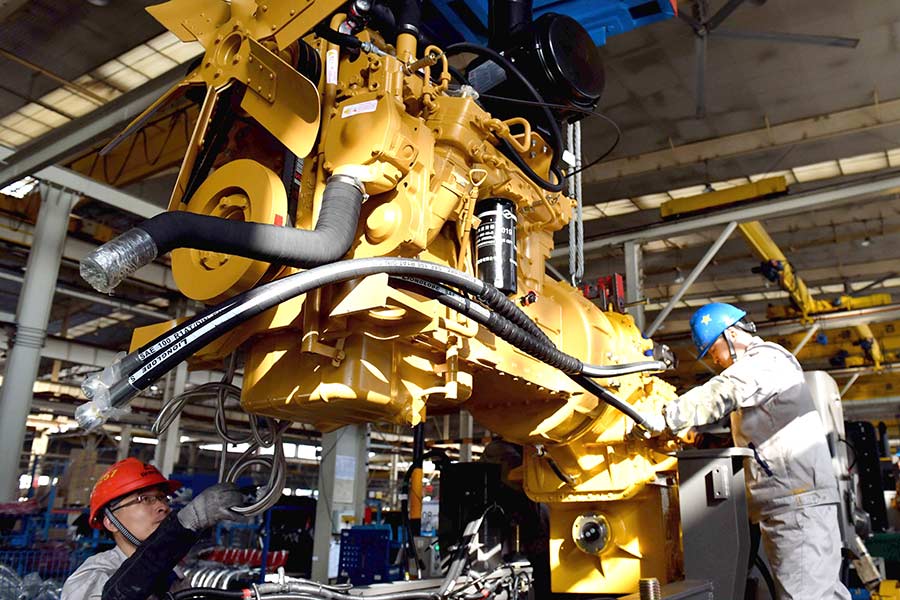Comprehensive measures will help the economy rebound
 Employees of an engineering machinery manufacturer in Shandong province work on the company's production line of loaders. [Photo/Xinhua]
Employees of an engineering machinery manufacturer in Shandong province work on the company's production line of loaders. [Photo/Xinhua]
The State Council, China's Cabinet, recently unveiled policy measures to bail out enterprises and stabilize the overall macro economy.
Thanks to effective coordination between COVID-19 prevention and control efforts and the measures to promote economic and social development, China's economic condition has improved from what it was in April.
However, due to a resurgence of COVID-19 cases in some places and geopolitical conflicts, downward pressure on China's economy has increased.
The policy measures unveiled by the State Council covering fiscal, taxation, monetary, transport and logistical aspects are aimed at lubricating the circulation of supply and demand in a timely manner to remove bottlenecks in the industry and supply chains, hedging the downward pressure on the economy.
Considering that many enterprises have been hit hard by the pandemic and are in urgent need of policy support, the package of measures could not have come at a better time.
The policies should be adopted to channel resources to the most needed and urgent areas to resolve the most important problems. The country also needs to focus on long-term economic and social development to lay the foundation for follow-up development.
How to further release policy dividends, tap the potential of economic growth in the implementation of policies, and ensure that all kinds of policies reach market players with precision is directly related to the ultimate effect of policies. To this end, multiple measures should be taken simultaneously.
Policy publicity, interpretation and guidance should first be strengthened so that market players can quickly benefit from the policies they deserve. The authorities should give full play to the important role of information in promoting policy implementation, and encourage local governments to integrate and make use of existing information platforms to comprehensively gather, analyze and accurately match information to achieve their "one-stop" and "barrier-free "access to enterprises and individuals.
Also, a good communication mechanism between government and enterprise should be established to grasp the feedback of enterprises on the effect of policy implementation in real time.
A mechanism aimed at strengthening daily monitoring of economic operation, especially the production, supply and marketing of key industries, should also be set up to identify problems in economic operation and resolve difficulties, so that policy dividends can be generated as soon as possible.
Editing by Wang Qing








